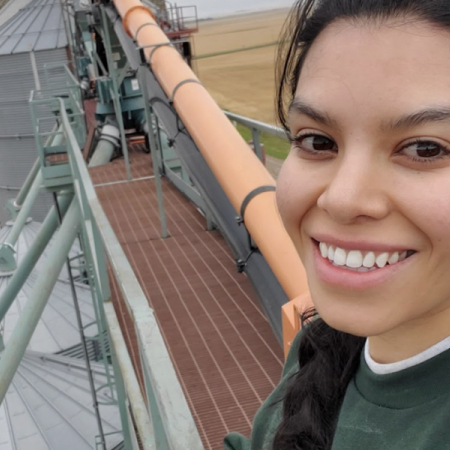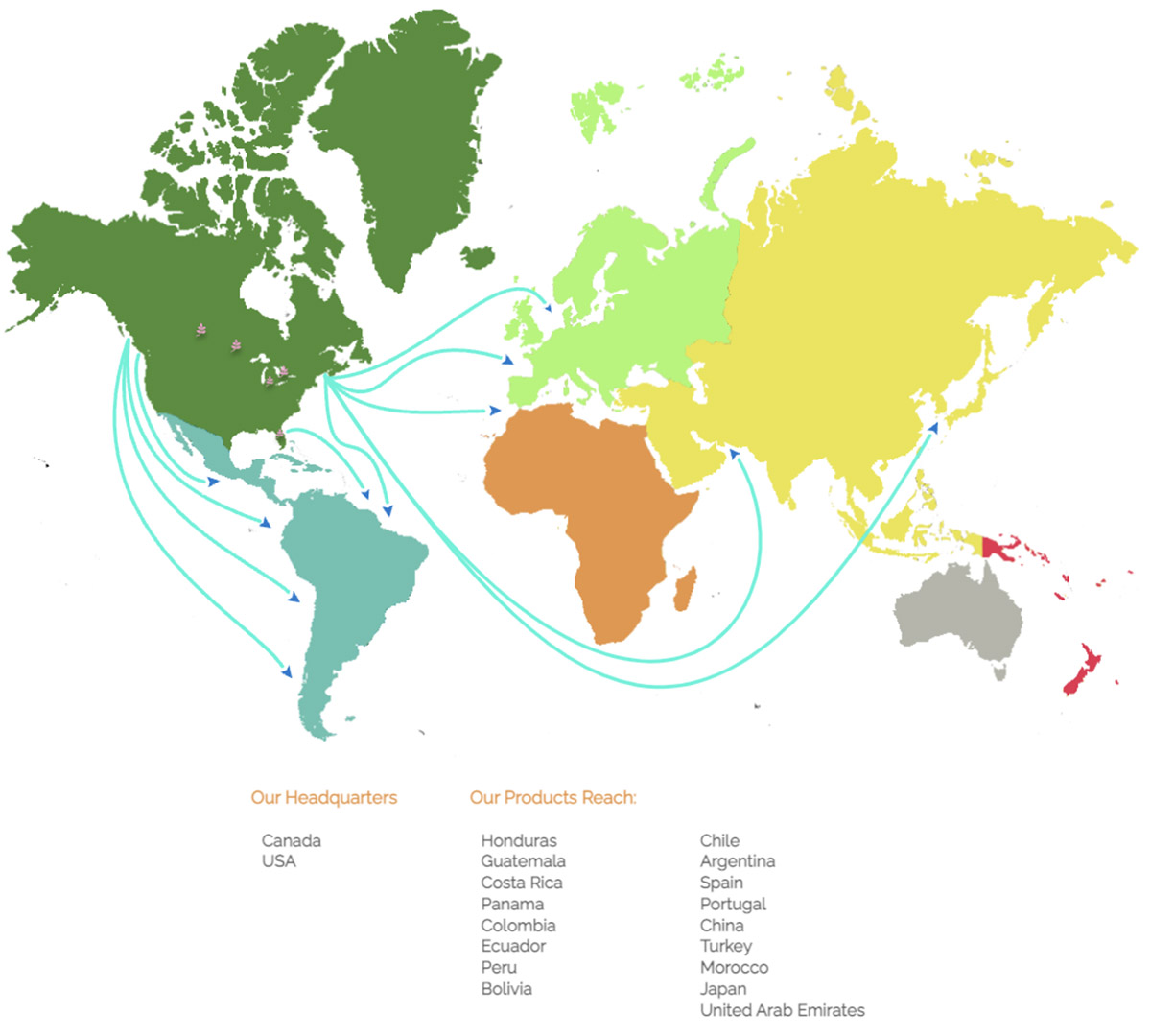October 26, 2022
Paola Duncan, co-founder of international pulse and grain traders Orionsea, chatted with Luke Wilkinson about the importance of the Chinese market and how high commodity prices are squeezing pulse acreage.


We started the company in 2014, myself and my sister. We were young but we had a lot of support from my family and a lot of people in the industry who had more experience. We started with a good backbone and we've been guided by amazing rentals, farmers and advisors given us a lot of support. We’re in both Canada and the United States but the headquarters are mainly in Canada - Toronto, Saskatchewan, and also Manitoba.
We’ve been able to grow exponentially - both professionally and as individuals. Orionsea has seen a lot of success with the help of our suppliers, partners, farmers, and all of our clients. Orionsea brings together the customer and supplier and makes sure that the magic happens! We are happy to be the guidance for everybody in the chain.
I work as an international trader. I studied a few languages, I speak about five – I've been privileged enough to have been able to travel around a bit. I lived in Montréal, I've lived in China - every place I've been to has allowed me to get a sense of the culture, language and the different things people want.
The knowledge I gained helps me close the gap between the differences between cultures when we're identifying the needs of different markets.
We have a few markets but a lot of them are Latin American. I have a Spanish-speaking background and I grew up with the culture with my family, so that makes it easier for me to interact with Latin American countries. A lot of my clients there have become like family to us.
Europe is also a market where we’re strengthening our presence all the time and China is important for us too. Having lived in China for a few years I'm able to understand why they need certain products and what exactly they need from us. For example, often they don't need packaging quality as much as they simply need the raw material in order to extract protein from peas, or to make paste from beans. Knowing the culture has certainly helped me get a better picture of their needs.

Markets Covered by Orionsea - Source: Orionseas.com
They import a lot of beans, like Great Northern beans, navies, black beans, black splits, and navy splits. It's interesting because a few years ago we would import from China because they had a big market and produced their own edible beans. I guess they're starting to use the acreage for other things now and they're actually importing a lot from North America and other places in Africa.
I think that's the question we've all been talking about, because a lot of the commodities, like wheat and canola are taking a lot more acreage. A lot of farmers are not prioritizing pulses because the bigger commodities are being traded at levels that we've not seen in a very long time. Soybeans are at their highest level, so if you're a farmer you weigh up the pros and cons of each commodity.
If a crop takes less time, requires less effort, and you are getting more for your money than, say, a black bean that needs more work and irrigation, then of course you're going to choose the easier option.
The reduction of pulse acreage due to commodities is a big concern and it’s going to put pressure on the price because quantities are lower. But, at the same time, a lot of Third World countries can't afford the prices that we’re used to in more developed countries.
You know, I get to see both sides, which is really good because I understand the farmer and where they're coming from. I understand they want a certain price for their beans. But I also understand the consumer and that if the price isn't right, they might not buy the volumes they usually do.
If people usually buy a bag of 500g for a week, they're going to reduce that to 300g or 100g for the week depending on the family. I think we will see reduced consumption and people changing their diets in central and South America, not changing them completely, but definitely a reduction. In the end, people will find ways to change their diet according to the market.
I like to be optimistic and I would say that we've had good deals compared to last year – that’s to say, average yields. We also had good quality when it comes to pulses in northern and Eastern Canada. I did a crop top and everything looked pretty good. I'm more concerned about the west because of the slight delay they had in planting due to rain but overall it looks like we're going to have an average crop.
Acreage is lower, but we're going to have good yield compared to last year, for sure.

Last year was sad; it made the crisis a lot worse. I'm hoping that this year with a more average yield and better quality, we're going to see prices be more stable and avoid a price drop like we saw two years ago.
This year I feel like the product will move. As I say, Central and South America buy according to price and need and North American pulses have better quality than a lot of other countries, which is also something that they are willing to pay for.
Things are also changing within North America, as we are seeing a shifting diet. All of a sudden last year our strongest market was our domestic market and the product stayed in North America because prices were so high; countries that normally imported from us look to buy lower quality pulses elsewhere.
In North America people are shifting to a healthier diet, and pulses being rich in nutrients, vitamins and fiber has really made the demand for them rise.
Definitely. Having other people's points of view from conferences like this really helps you understand the scheme of things. It's also great for networking and understanding different markets and their necessities.
I believe it's a big, beautiful market, and we’re seeing new markets start to grow, like the North American and domestic markets that weren't there before. So that's something we are looking to explore. We want to continue having great relationships and always make sure that we offer service, quality and integrity in everything we do.
Something I feel that our clients can relate to is that they can always come to us for anything, whether they have problems or specific needs for whatever venture they’re working on.
We have amazing cooperative farmers and we make sure that the processing facilities are all up to the specification we need them to be. That way we can make sure the chain is as smooth as possible to help guarantee a successful outcome. If we make sure that your company is successful, in the end, that makes us successful.
Disclaimer: The opinions or views expressed in this publication are those of the authors or quoted persons. They do not purport to reflect the opinions or views of the Global Pulse Confederation or its members.